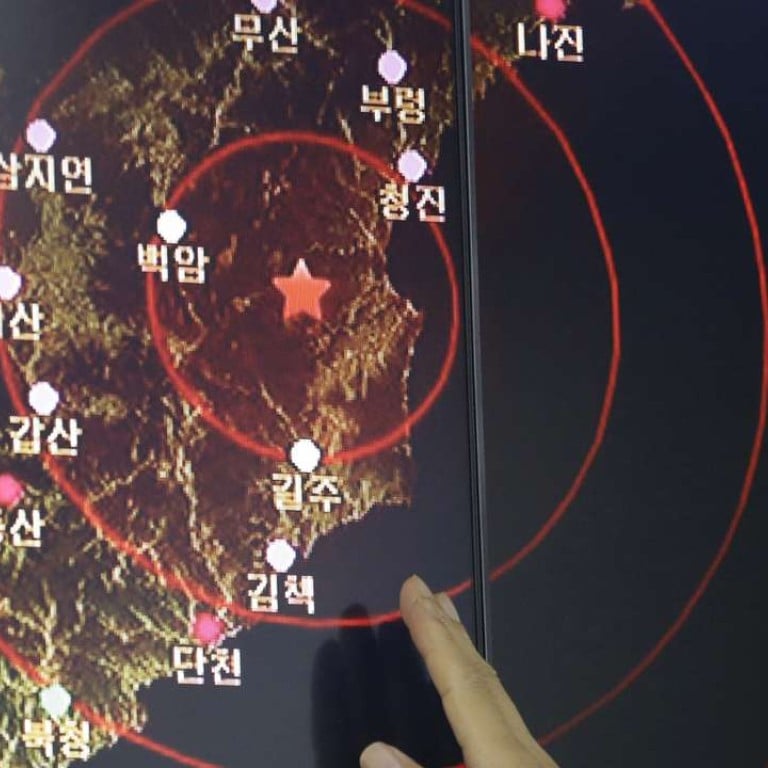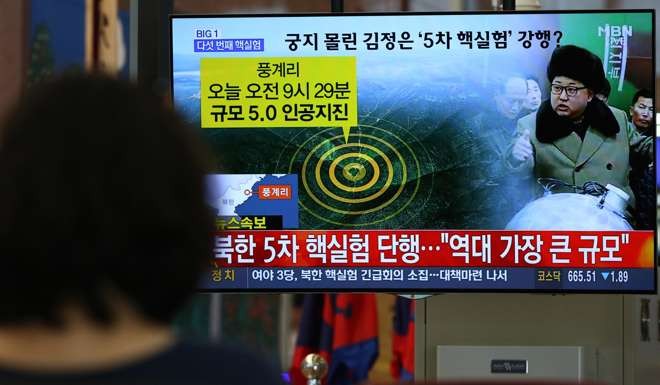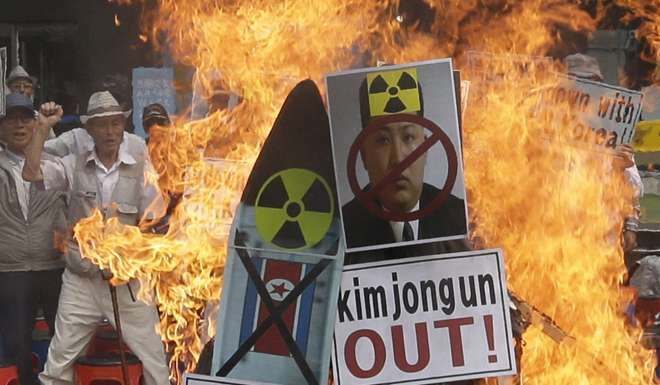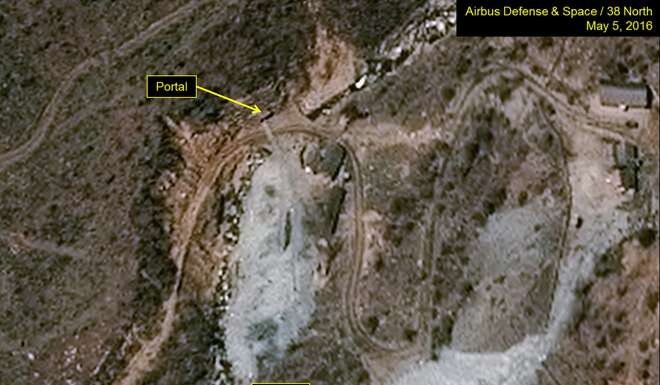
Has North Korea already prepared for its next nuclear test?
South Korea reports Pyongyang is capable of detonating another nuclear device anytime - just days after its fifth bomb explosion
North Korea is ready to conduct an additional nuclear test at any time, South Korea’s Defence Ministry said on Monday, three days after the reclusive North’s fifth test drew widespread condemnation.
“Assessment by South Korean and US intelligence is that the North is always ready for an additional nuclear test in the Punggye-ri area,” South Korean Defence Ministry spokesman Moon Sang-gyun told a news briefing.
Punggye-ri, near the northeastern coast, is the site of the North’s five nuclear explosions.
“North Korea has a tunnel where it can conduct an additional nuclear test,” Moon said.

South Korea’s Yonhap News Agency reported earlier that North Korea had completed preparations for another nuclear test, citing South Korean government sources who said the North may use a previously unused tunnel at its mountainous test site.
It did not elaborate on what activities had been detected at the Punggye-ri nuclear test site.
The report comes as North Korea’s Foreign Minister Ri Yong Ho arrived in Beijing on Monday, possibly on his way to New York to attend the UN General Assembly later this month.
China is not capable of persuading North Korea to give up nuclear development, because China’s efforts are not supported by the others
A car carrying Ri, a former top nuclear negotiator who assumed his current post in May, entered the North Korean Embassy.
It remains unclear if Ri has any plans to meet with Chinese officials before leaving Beijing.
Along with other major countries, China, North Korea’s most important diplomatic backer and economic lifeline, has voiced strong opposition to the nuclear test, which was carried out in violation of multiple UN Security Council resolutions. But China’s Foreign Ministry said that sanctions alone cannot solve the North Korean nuclear issue and that unilateral action can only lead to a dead end.
Since Friday, Chinese state media have repeatedly linked North Korea’s latest nuclear test to the American deployment of a high-altitude missile defence system in South Korea, which China has long opposed.
Chinese Foreign Ministry spokeswoman Hua Chunying did not mention the missile defence system, known as THAAD, on Monday. But she said all sides needed to resolve their concerns in a “balanced way”.

A US special envoy for the isolated state, Sung Kim, will travel to Seoul on Monday after discussing cooperation among neighbouring countries in Tokyo in the wake of the North’s latest nuclear test.
Kim met with Japanese officials on Sunday and said the United States may launch unilateral sanctions against North Korea, echoing comments by US President Barack Obama on Friday in the wake of the test.
A push for further sanctions was “laughable”, North Korea said on Sunday, vowing to continue to strengthen its nuclear power.
The US military delayed a planned B-1B bomber flight to the Korean peninsula, a show of strength and solidarity with ally Seoul, scheduled for Monday, Yonhap reported. The delay of at least 24 hours was due to bad weather conditions in Guam, Yonhap said, citing an unidentified US Forces Korea official.

The UN Security Council denounced the test and said it would begin work immediately on a resolution. The United States, Britain and France pushed for the 15-member body to impose new sanctions.
It was not clear if the Security Council can quickly come to a consensus on fresh sanctions, given the ambivalence by China and Russia on adopting another resolution. Both countries did join sanctions in March following the North’s January nuclear test.
On Saturday, Russian Foreign Minister Sergei Lavrov said a “creative” response was needed.
The Global Times, run by the Chinese Communist Party, rejected the suggestion by the United States that Beijing was responsible for the North’s pursuit of nuclear arms. It said the United States was “the root cause” of the issue.
“China is not capable of persuading North Korea to give up nuclear development, because China’s efforts are not supported by the others,” it said in an editorial on Monday. “Washington has been refusing to sign a peace treaty with Pyongyang.”
Additional reporting by Kyodo and Associated Press

